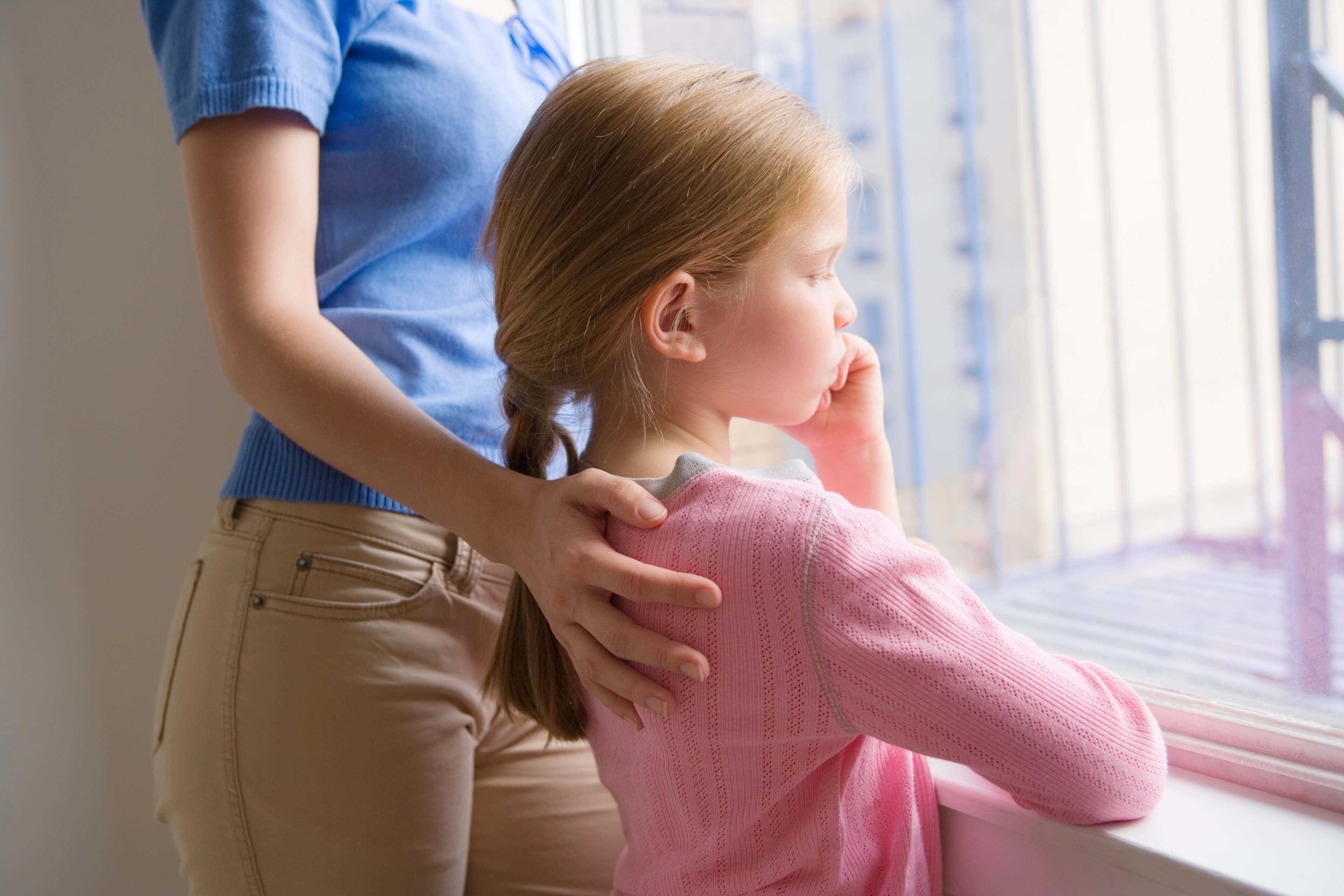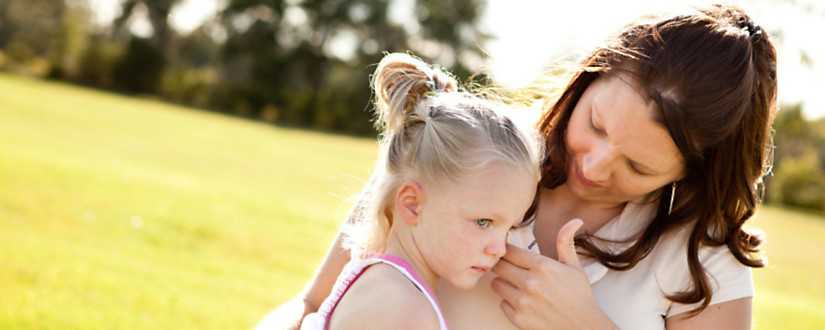Children experience loss in many ways. The loss may be an external object, an environmental loss, a skill or ability, a habit, the protection of the adult world, or a future. They frequently experience loss through death of a pet, grandparent, relative, or friend. Twenty percent of today's children will have experienced the loss of a parent by the end of high school.
Adults have difficulty imagining that children can experience the range and intensity of emotions that adults feel following a death. Children old enough to love are old enough to grieve. Adults need to be aware that grief is a normal emotional response to death. Bereavement is the state of having lost something or someone valued, and mourning is the public expression of grief.
Myths Surrounding Death
One of the problems children encounter in effectively dealing with death results from the myths in our society surrounding death. Children are being raised with the same myths that their parents were taught:
adults can easily explain death;
the experience of grief has orderly stages;
the grief of adults does not affect the bereaved child;
adults should avoid topics that cause a child to cry;
an active, playing child is not a grieving child;
infants and toddlers are too young to grieve;
children need to "get over" their grief and move on;
children are better off not attending funerals.
The reactions of a child to a death in the family are influenced most by the surviving family members and the restructuring of the family system. Children should never be assigned an adult role when a parent dies. Some factors that determine a child's reaction to a death are:
the reactions of family members;
the relationship of the child to the deceased before his death;
the family support system, particularly the church;
family stress;
family resources.
Another major factor determining reactions to death is the age of the child.
Infants and toddlers express their pain with sadness, crying, difficulty sleeping or eating, or clinging behavior.
Children 2 to 7 years of age may believe they caused the death. Other emotional responses may be regression, lack of feeling, explosive emotions, fear, acting out behavior, guilt, and sadness. Children at this age need constant reassurance and repeated explanations in order to make sense of the situation.
By 7 to 8 years of age, children know that death is irreversible, inevitable, and universal.
Bereavement in early childhood can have a damaging effect. Children who experience loss need to express their grief and work through unresolved feelings in order to prevent the possibility of later social or mental dysfunction. Although some children receive the love and care they need from their families to help them express their feelings freely and recover from the trauma of bereavement, they might benefit from referral to a skilled therapist to assist with appropriate recovery.

How to Tell a Child About Death
As a Christian social worker, I think the way adults tell a child about a death is important.
Talk to the child as soon as possible after the death.
Give the child a simple, honest explanation using clear, concise words.
Find familiar surroundings to have the talk with the child.
Be sure the child understands the meanings of the words used.
Give adequate but not detailed information about the death.
Address the child's fears and anxieties.
Reassure the child that he is not to blame for the death and that someone will care for him.
Listen carefully to the child, validating feelings, assisting with overwhelming feelings, and involving and including him.
Continue the child's routine.
Model appropriate grief behaviors.
Provide opportunities to remember the loved one who has died.
In accepting loss, children have to understand, grieve, remember, and find a way to go on with life. Sensitive adults can assist children by providing a safe place to express feelings, being willing to listen attentively and caringly to children's stories of loss, and utilizing methods to help children express their thoughts and feelings.
Children can be our teachers as we share their grief journey. We need to allow them to be our guides as we listen. Storytelling, poetry, and art can be used to encourage children to express feelings of anger, sadness, resentment, guilt, and shame. Adults can help children by creating a pictorial family history and memory boxes. In addition, clay, puppets, music, and stories are useful methods for expressing feelings. Other models of intervention are counseling, peer groups, and family therapy.
My personal belief is that children should be included in the visitation or funeral of a loved one if they choose. They can be prepared for this stressful and painful experience by explaining beforehand what they will see, how the body will look and feel, who will be there, and what will take place. For young children, a short visit may be best. I recommend that some caring adult should be prepared to leave with the child if he or she becomes uncomfortable. Prior to the death of a loved one, taking the child to the visitation or funeral of a neighbor, casual friend, or distant relative can help to prepare the child to deal with the death of a parent, close relative, or other person to whom he or she is attached.
Grieving the death of a pet, friend, family member, grandparent, or parent can be considered a developmental task throughout life because loss and grief due to death are a normal part of living. Adults can use teachable moments to normalize death and the grief experience and to model and guide children in externalizing feelings.
